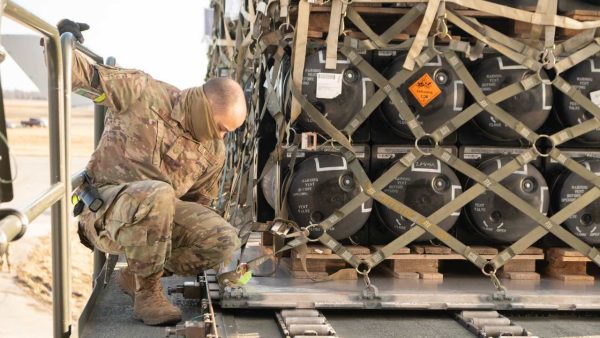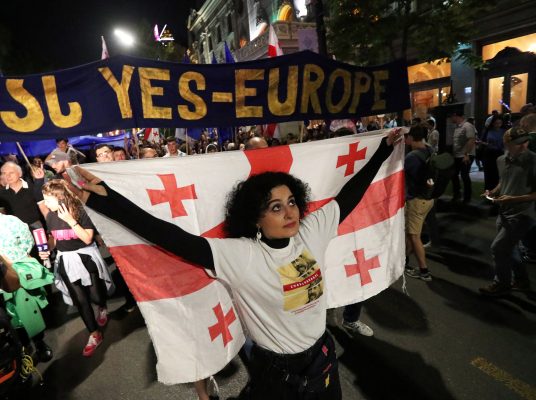The United States needs to provide Ukraine with more military aid so that it can win the war against Russia, but it must also have a plan to win the peace once the war is over, Stephen J. Hadley, a former national security advisor to US President George W. Bush, told the 2023 CEPA Forum, “Winning the War, Winning the Peace,” on September 26.
Making the case for more military assistance to Ukraine, Hadley said: “One of the things we do in the United States sometimes is we put in enough military capability not to lose, but not enough to actually succeed and bring the war successfully to a close . . . that’s a lesson we’re learning in Ukraine. And it requires, I think, for us to accelerate our supply and support militarily to Ukraine.”
Hadley emphasized the importance of winning the peace once the war is over. “Winning the peace will depend a lot on economic support, both during the war and after the war,” he said in a pre-recorded interview. Ukraine’s economy lost over 30% of GDP in the year following Russia’s invasion on February 24, 2022.
It is important for Ukraine’s partners in the West to have “a strategy to help Ukraine both get through the war and then a strategy to help Ukraine rebuild after the war,” Hadley said. He added: “Because you can win the war and lose the peace, and whether you win the peace will depend a lot on what you can do economically. And these issues are very hard, as we learned in places like Afghanistan and Iraq.”
Hadley was joined in a discussion by Desi Shaw, a high school junior at Shawnigan Lake School in Canada and the winner of the CEPA Foreign Policy Pitching Competition. Maggie Miller, a cybersecurity reporter for Politico, moderated the discussion.
Shaw, whose paper focused on the significance of the war’s impact on global grain supply chains, said: “Russia is essentially holding a significant portion of the world’s food supply hostage.” The shocks from the disruption are being felt across Asia, the Middle East, and North Africa.
Besides the importance of making supply chains more resilient, Hadley said the war in Ukraine has shown the importance of the solidarity of alliances as well as that of having a local partner, like Ukraine, that is willing to fight for its freedom and a leader, like Volodymyr Zelenskyy, who is willing to rally his country.
In terms of future security challenges, Shaw pointed out the need to transition from a “just-in-time” supply chain model to a more resilient “just-in-case” model. She highlighted the importance of bringing manufacturing back to member nations within NATO to enhance national wealth and self-sustainability.
Europe’s Edge is CEPA’s online journal covering critical topics on the foreign policy docket across Europe and North America. All opinions are those of the author and do not necessarily represent the position or views of the institutions they represent or the Center for European Policy Analysis.





